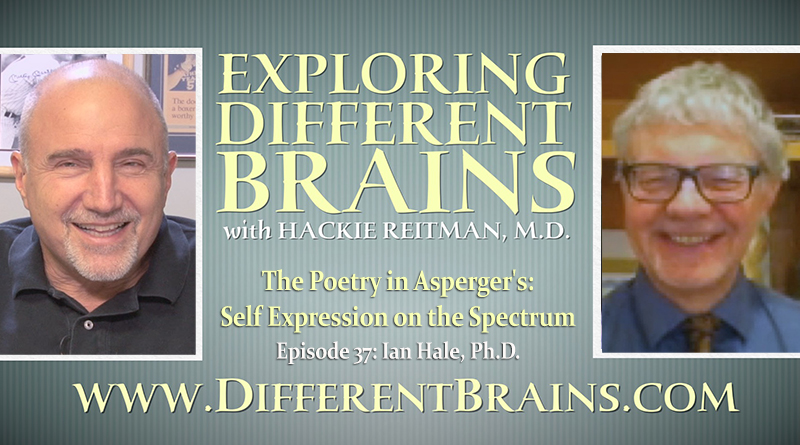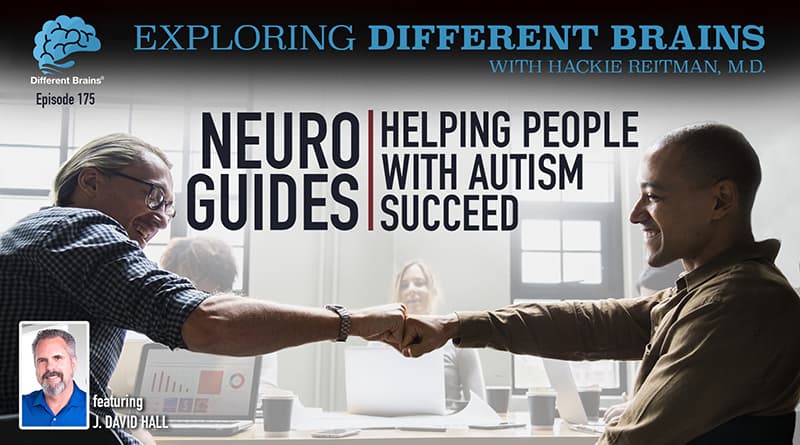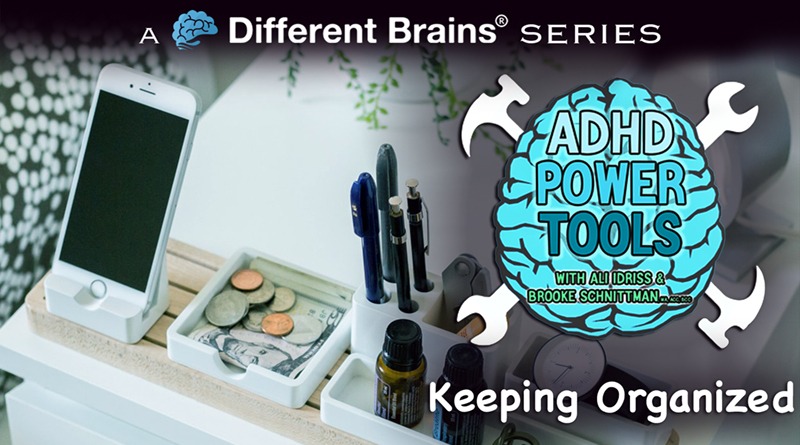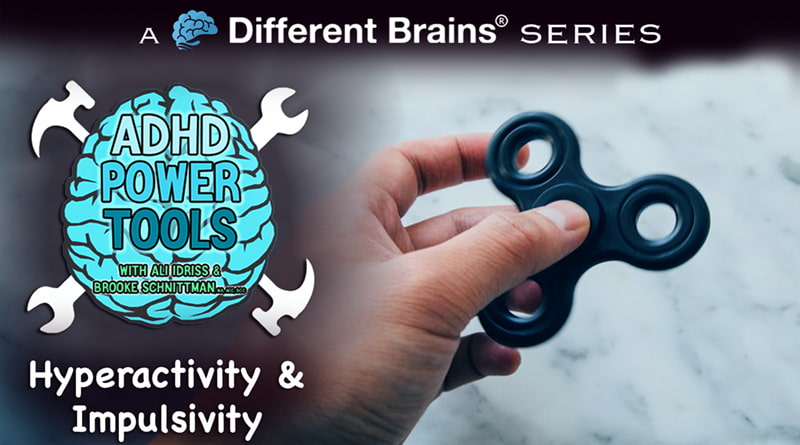
The Poetry in Asperger’s: Self Expression on the Spectrum, with Ian Hale, Ph.D. | EDB Episode 37
In this episode, Harold Reitman, M.D. continues his conversation with Ian Hale, Ph.D., writer, poet, public speaker and researcher who happens to be on the autism spectrum. Dr. Hale discusses how he has used poetry to express himself, the state of neurodiversity awareness throughout Europe, and the importance of allowing those with “different brains” to express themselves how they wish.
For more information, visit: ianchalephd.com
Look for Dr. Hale’s books at Amazon.com-
The Insider’s Guide to Autism and Asperger’s
35 Second Preview:
To listen or download the podcast version of this episode, see the embedded player below.
Or look for us on your favorite podcast provider:
iTunes | Stitcher | SoundCloud
[expand title=”View Full Transcript”]
HACKIE REITMAN, M.D. (HR):
We’re talking here with Dr. Ian Hale, who speaks all over the world, is a poet, is an author–who is about to tell us about his wonderful book: The Insider’s Guide to Autism and Asperger’s. Tell us about your book.
IAN HALE, Ph.D. (IH):
It’s a very funny story. I was talking to a friend of mine two or three years ago, we were just having a drink, and he mentioned that his granddaughter has autism. And he and myself and his wife talked about this over a number of weeks, and after that number of weeks he turned to me one evening and said, Ian, you’ve got an awful lot to say about autism, you’ve told the two of us a great deal about it, and about your own experiences, both potentially as a teacher and personally as someone who is very much on the spectrum–you’ve really helped our granddaughter, why don’t you try to help other people? I said, well, what have you got in mind? Why don’t you write a book about it? You’ve got a lot of words, so just write them down. And he said I’ll give you one year from today, and I’ll bet you a pint that he doesn’t do it. So if you do it within one year of today, I’ll buy you a pint. That’s why I sat down and started writing that book, and I did get my pint.
HR:
Was it Guinness though, that’s the question.
IH:.
No, it wasn’t. It was a Spanish beer actually, which I happened to like.
HR:
Well what’s the name of the beer?
IH:
Mahou. M-A-H-O-U.
HR:
You know, you work as an educational consultant, and what is the biggest roadblock you run into at an educational institution that you’re trying to help out? Like what is a big roadblock that you, Dr. Ian Hale, as an educational consultant, run into?
IH:
Ritual. The concept of, we’ve always done it this way, this is the only way that it can be done. People are not open to ideas, and if they’re–if you suggest something to them that’s different–and this is particularly true, and I’ll be particularly critical of England–the attitude varies, that we have always done it this way, we always will do it this way, and anybody who suggest any different way is criticizing us and therefore we regard that person as being hostile and not being a positive contributor. That no criticism or observation is being treated as positive, and it goes against what they’ve been doing for the last 500 years or however it might be. Closed-minds. I’m afraid that’s still very true today. Teachers like Mrs. Crawford are prepared to make the effort, and I remember another brilliant English teacher I had, Mr. Poffert, who was a mentor and later on Mr. Hiscock when I was much, much older in high school. But they are few and far between.
HR:
Now, unlike me, Ian, you’ve traveled all over the world, speaking, consulting, lecturing–tell us–because I don’t travel much, and tell our audience what you’ve noticed about the attitudes toward neurodiversity among the different countries and regions you’ve traveled to? Is there a difference or are they all the same? What do you think?
IH:
There are vast differences. I’ve not had any experience. I mean I have been to America, but not for more than well-over twenty years, probably near 30 years, and I do want to travel and talk in America and research there as well, very much.
HR:
We’ll go for a pint when you come to Florida.
IH:
I would very much like to. I have good friends in Florida, anyway, my business partner, David Burcocke of Atlantic Enterprises who is a total genius in every area–he lives in Miami Dade Florida, and I urge everyone to have a look at what David’s work is.
HR:
Well introduce him to me, I’m right in Fort Lauderdale, were only about 40 minutes away. So–
IH:
I will certainly do that sir, I will. But, so I can’t speak for America, but yes, I’ve been to Scandinavia, Sweden, to Norway, to Denmark–the attitude there is lightyears away from Britain. It is completely hands-on. They completely understand the vital part of a successful outcome for anybody who’s of a different brain. That early diagnosis and early intervention are absolutely crucial–that they study it, both educationally, socially–they study the genetics of it, they study the critical medicine of it–they provide an extraordinary amount of help in schools, they provide benefits to make sure these people will never be short of money–the same is true in Switzerland. Holland are a good example of a very hands-on country. Germany are, Russia, Hungary, I’ve noticed as well, are very, very advanced in their attitudes and their treatment. The same applies to Romania, though I’m sure a lot of people will find that surprising. Estonia is another one of the ex-soviet bloc countries which is very go-ahead and is looking very much toward becoming tech-revolutionary, the revolutionary of the world, and is educating and looking at their different-brained people as part of the engine of that development. There are other countries, and I don’t want to be too rude, but there are countries, particularly in the Middle East and in other parts of the world that regard it as a family shame, and somebody with autism will be, or can be–locked away, and that person will not be acknowledged as a human being. So that’s the vast range of experience that I can tell you about, from the very good to the appallingness, I’m going to use that word, and discrimination against neurodiverse people.
HR:
Very enlightening.
IH:
I’ve met plenty of discrimination and negativity and indeed, when I was a kid, bullying, you know, in England. I know I from the experiences of friends in America that they started from bullying, and I know that a lot of different-brained people around the world do, but that, again, is something that Scandinavia, and Germany in particular, I have experienced, are very, very careful to protect neurodiverse children from–and of course, it doesn’t stop as a child. People go into the workplace. Bullying goes on into the workplace. Bullying, like autism, is not something that can be grown out of. But it is something that can be taught how to tell with. The way I did it, I learned a martial art when I was 17-18, and I was a big, strong rugby player. So I didn’t get too much of that problem.
HR:
Oh.
IH:
But I’ve seen it happen to a lot of people, and I’ve heard a lot of stories from autistic and other differently-brained people, during my professional years as an educator, and some of those stories, you know, made me cry, I’ll be honest. And some of the stories, including my own, form aspects of the poetry that I write–
HR:
Well I want to get into that. Before I get into the poetry, because I played rugby for 10 years up in Boston, and when the team from England would come over they would kick our butts, it wasn’t even a contest a lot of the time–what position did you play?
IH:
Hooker.
HR:
Oh, I figured that. Very cerebral position.
IH:
I’m not very tall, but I was quite bulky and I spent a lot of time with weights from the time I was about 14 or 15. So I was quite–I was kind of a cube boy. I was a cube.
HR:
Now, what I would like to know from you, for our audience, is how your different brain–let’s call it autistic or Asperger’s, or, as you say, Asperger’s, how does it affect your poetry?
IH:
100% if I wasn’t what I am, my poetry would be different. The first book of poems that have been published now, and, again, they’re available as E-books, paperbacks, the usual distributors and online–
HR:
Hold on, hold on. Tell our audience some of the names of these different works and your books and your poems, but why don’t you tell us how people can find these things and find out more about you and–let’s take a minute to do a commercial on you. Because I want people to know the names of the books, the names of the works, how they get you, how they find you. Let’s go.
IH:
If you google Dr. Ian Hale, that’s the first way to find me. The book on autism is called the Insider’s Guide to Autism & Asperger’s. The first poetry book is called Emotional Exile, because that was the best title to describe my experience of being an aspie, of being Asperger’s syndrome. I’ve described the experience as like living inside a greenhouse. You can hear and see the way people are living and interacting and everything with each other, and the door is there, so you know, there is a little bit of communication, but, at the end of the day, you’re still an outsider, and that’s why I’ve called the book Emotional Exile. And the second book of poems is called Dance With the Desert, and it was David Burcocke, the man I mentioned in Miami, who’s designed and created the covers for those two books, the two poetry books. The cover for the autism book, which is, again, seriously striking–was created by Mr. Stuart Watson who lives near London now, who is simply the best graphics, Photoshop user and general computer guy that I know, and ever have known, and he is a brilliant mind–great young man–Dance with the Desert is more–is less autobiographical than Emotional Exile. It’s more wishful I think, and it’s more descriptive and it’s more about an actual world, as well as about my inner world, but also my experiences and what people have told me of their inner worlds, whether they be different brained people or not, it’s a gentler book than Emotional Exile, but they both have fantastic reviews from very important reviewers. One of them was kind enough to–an English girl in fact, for Dance with the Desert, compared me with Keats and T.S. Elliot I’ve already said, I’m extremely flattered. I’m currently trying to write the third of that intended trilogy, because the poetry books are supposed to be initially free, and I want to write a lot more poetry books, and the trilogy is called Journeys. So contacting me–Www.IanCHalePhD.com. That will take you to the autism book and Dr. Ian Hale, Emotional Exile. Dr. Ian Hale Dancing with the Desert will take you to the two poetry books.
HR:
Now, you see, your poetry and writing is being compared to T.S. Elliot, Keats, and I get compared to like the three stooges, I mean you know, there’s a difference between the two of us. Or you don’t know what the three stooges are over there. That was–in my childhood that was a TV show with three funny guys who weren’t too bright. I forgot about the cultural divide between us, you see.
IH:
We did see those films on English TV. I’ve seen a couple of them, yeah.
HR:
Yes, I favored “Curly.” Now, before we go, I wanted to ask you what is one message that you would like all of our differentbrains.com viewers and listeners and readers–what is the one message that you, Dr. Ian Hale, would like to give them?
IH:
When you come across someone with a different brain, try to find out how they communicate best. It might be by–they might play you a song that expresses their feelings–they might do shadow puppeting on the wall that expresses their feelings–they might sing–I’m a great believer, for example, I think one of the things that is really helpful, as far as I’m concerned at least, is to sing in public. I mean I’m not saying it’s good, but it’s a wonderful hobby. It helps with self-expression. Some differently brained people will draw, and I’ve met a number of those who express themselves that way. The secret, and what I want to get out to everybody, is that we are different, not inferior–that autism is not a disease. There is no cure, it’s a different state of mind, it’s a different perspective of the world, and it’s as valid as anybody else’s, and that includes anyone with a different brain, whether they be bipolar, or schizophrenic, or Asperger’s, or whatever else it is, they see the world from a different angle. Respect that, learn from it, as they will learn from you. So the plea that I shout out to the world, listening, tolerating, communicating, sharing. That is what I want to tell people.
HR:
VERY well said. We’ve been speaking with Dr. Ian Hale and this is Dr. Hackie Reitman with another episode of Exploring Different Brains. Ian, it’s been a great pleasure, thank you so much for being with us.
IH:
Oh, it’s been a great pleasure to meet you and a great pleasure to say hello to the viewers as well. Been very, very enjoyable, and I thank you again for the opportunity.
[/expand]
This video is owned by Different Brains Inc, kindly donated by it’s original producer PCE Media LLC.
Different Brains® Inc. founder Harold “Hackie” Reitman, M.D. is an author, filmmaker, retired orthopedic surgeon, former professional heavyweight boxer, the past chairman and president (and current board member) of The Boys and Girls Clubs of Broward County, and a neurodiversity advocate. However, it was his role as a father that led to the creation of the DifferentBrains.org website.
Hackie’s daughter Rebecca grew up with epilepsy, 23 vascular brains tumors, and underwent 2 brain surgeries before the age of 5. Her struggles and recovery put him on the road to, through 26 professional heavyweight boxing matches, raising money for children’s charities (to which he donated every fight purse).
Rebecca eventually went on to graduate from Georgia Tech with a degree in Discrete Mathematics, and Dr. Reitman wrote and produced a film based on her experiences there (The Square Root of 2, starring Darby Stanchfield of ABC’s Scandal). After graduation, Rebecca received a diagnosis of Asperger’s syndrome. Hackie, shocked at his own ignorance of the topic despite being an M.D., embarked on years of research that culminated with his book Aspertools: The Practical Guide for Understanding and Embracing Asperger’s, Autism Spectrum Disorders, and Neurodiversity (released by HCI books, publishers of the Chicken Soup for the Soul series).
This experience revealed to Hackie the interconnectedness of the conditions that fall under the neurodiversity umbrella, while alerting him to the in-fighting and fractured relations that often plague the organizations tasked with serving the community. Convinced that overcoming these schisms could help all of society, Hackie forged the Different Brains philosophy of inclusive advocacy: “Supporting Neurodiversity – From Autism to Alzheimer’s and All Brains In Between”.
In the company’s initial years of operation, Hackie self-financed all of the content on DifferentBrains.org, all of which offered free to view to the public. Currently he is the host of our weekly interview show Exploring Different Brains, writes blogs for the site, and tours the country speaking at conferences, conventions and private functions, all with the goal of improving the lives of neurodiverse individuals and their families, and maximizing the potential of those with different brains. Separate from Different Brains, Hackie is the founder and CEO of PCE Media, a media production company focusing on reality based content. He recently co-executive produced the documentary “Foreman”, the definitive feature documentary on legendary boxer and pitchman George Foreman.




